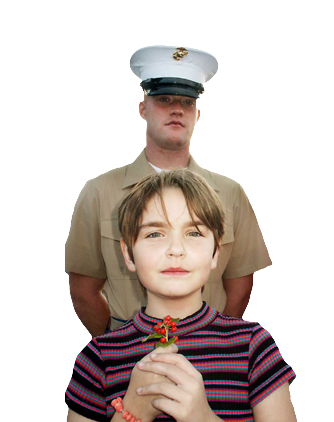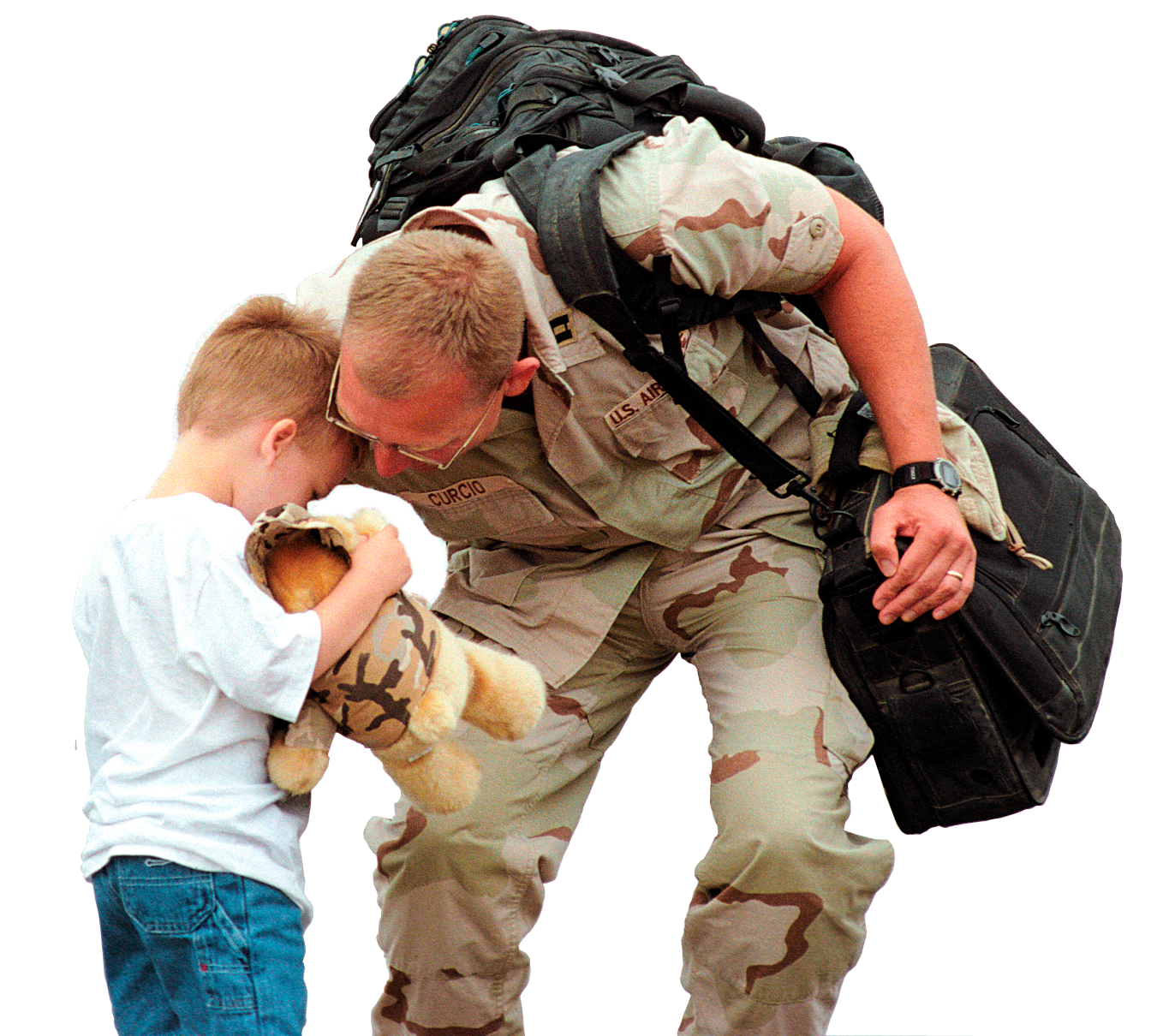[caption id="attachment_3878" align="alignleft" width="300"] Marine Corps Staff Sgt. Gary Morris talks to students at the American International School in Monrovia, Liberia, where he has been voluntarily teaching a physical education class since February 2010. U.S. Africa Command photo by Nicole Dalrymple[/caption] MONROVIA, Liberia, – Marine Corps Staff Sgt. Gary Morris' time in Liberia, which originally began as a voluntary six-month assignment, will end in August, 20 months after it started.
Marine Corps Staff Sgt. Gary Morris talks to students at the American International School in Monrovia, Liberia, where he has been voluntarily teaching a physical education class since February 2010. U.S. Africa Command photo by Nicole Dalrymple[/caption] MONROVIA, Liberia, – Marine Corps Staff Sgt. Gary Morris' time in Liberia, which originally began as a voluntary six-month assignment, will end in August, 20 months after it started.
 Marine Corps Staff Sgt. Gary Morris talks to students at the American International School in Monrovia, Liberia, where he has been voluntarily teaching a physical education class since February 2010. U.S. Africa Command photo by Nicole Dalrymple[/caption] MONROVIA, Liberia, – Marine Corps Staff Sgt. Gary Morris' time in Liberia, which originally began as a voluntary six-month assignment, will end in August, 20 months after it started.
Marine Corps Staff Sgt. Gary Morris talks to students at the American International School in Monrovia, Liberia, where he has been voluntarily teaching a physical education class since February 2010. U.S. Africa Command photo by Nicole Dalrymple[/caption] MONROVIA, Liberia, – Marine Corps Staff Sgt. Gary Morris' time in Liberia, which originally began as a voluntary six-month assignment, will end in August, 20 months after it started.The U.S. military has been providing mentors and advisors to Liberia's security sector reform initiative since 2006 through a U.S. State Department-led initiative. Morris, a reservist, was serving as a platoon leader in an antiterrorism unit in Billings, Mont., when he accepted an assignment as a military advisor in Liberia.Morris arrived in Liberia on January 2009, where for six months he served as a mentor to the 2nd Battalion of the newly formed 23rd Infantry Brigade of the Liberian armed forces. He returned home to Dallas, only to receive a call shortly afterward asking if he would return to Liberia.Morris agreed to return to Liberia, and served another two months as a mentor. He then moved to U.S. Africa Command's office of security cooperation at the U.S. Embassy in Monrovia. He works there as the Liberia defense-sector reform liaison and assists all U.S. military personnel in Liberia with logistical support. Morris said he has learned a lot about Liberia and its people because he has taken the time to talk to people and get to know them. He said the Liberian people will tell him about the devastating civil war that ravaged their country for 14 years. The Liberian children he has met seem mature beyond their years, Morris observed. "Kids here don't get a chance to be kids," he explained. "That's what strikes me. Four and 5 year olds are out working and earning money for their families." To Morris, who has a 6-year-old son, "It is a fascinating place and a very humbling place." On top of his regular duties, Morris has regularly visited a small Monrovia school for more than a year, and he recently started teaching a weekly physical education class at the American International School in Monrovia. In March 2009, Morris met a group of children who watched as he offered assistance to the driver of a Liberian military truck that had broken down near Camp Edward Binyah Kesselly Barracks, where the battalion is based. He was approached by their teacher at the Margretia School, who invited Morris to visit. During his visit to the school, Morris learned that unless the students brought their own food, they didn't get lunch. Perhaps it was his own experience as a child in Jamaica, walking to school in his bare feet and picking fruit from the trees for breakfast, but Morris knew what the children needed. He began making regular trips to the school, bringing bags of rice and cooking oil and providing all the items needed to provide lunch for the children. In an effort to create a connection between the Liberian armed forces and the school, and hoping others would continue to support the school after he leaves, Morris brought Liberian soldiers to the school and invited fellow U.S. servicemembers to accompany him on his visits. In January 2010, Morris was invited to teach a class on exercise and nutrition at American International School in Monrovia. This morphed into a standing appointment every Friday, where he teaches a 90-minute physical education class to 24 students in grades 4 through 9. A certified trainer, Morris owns and operates his own personal training and corporate fitness business back home in Texas. Many of the students at American International School are children of parents serving in Liberia as diplomats or nongovernmental organization employees. Some are children of Liberians who are returning to the country after leaving because of the civil war. The diverse student body represents France, Ghana, Holland, Korea, Lebanon, Liberia, Nigeria, Niger, Sierra Leone, Spain, Syria, the United Kingdom and the United States. Teachers report noticing a change in the students since Morris started teaching physical education. The school's director, Gary Eubank, and his wife, Rory, who is the upper school team leader, praised Morris on his interaction with the students. "They are more attentive in class and have been asking about the nutritional value of snacks and food," Rory Eubank said. "The kids love his classes." Her husband noted that Morris has set benchmarks, incorporating the President's Council on Physical Fitness and Sports into his program. He encourages the children to set goals, he said, and conducts periodic assessments so they can see how they are improving. Morris also has engaged the students in leadership activities, having them lead exercises and giving them an example to emulate. In particular, Rory Eubank commented on changes she has seen in a 7th-grade student from Niger. "He is a superb student and a bit of jokester," she said. "We've seen him becoming a leader, becoming more serious but still retaining his fun side." Morris views his time in Liberia as volunteerism. While he misses his son, he said, he tells him what he is doing and why it is important. "The U.S. military is having a very positive impact here in Liberia," he said, adding the biggest compliment he has received as a Marine came when he was leaving the United Nations Liberian mission’s headquarters here and a gentleman told him, "When I see U.S. Marines, it brings me peace." Morris said the future of Liberia is bright. "I remember the president telling the [armed forces] that they are the future of Liberia," he said, reflecting on a Feb. 11 Armed Forces Day ceremony. "I can feel the pride [the Liberian servicemembers] feel, and at the Armed Forces Day, I could feel the pride that Liberians have in their armed forces." May 7, 2010: By Nicole Dalrymple-U.S. Africa Command






